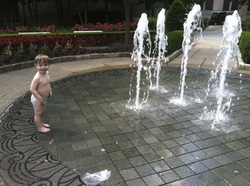 Eli's favorite part of coming to work with me today was visiting the fountain outside the lab. Remember to be present and enjoy the moment! We almost walked by the fountain without stopping, and I'm so glad we got to play in the water together. Add Comment  CANLab grad students and summer undergrads enjoyed listening to the opening performance of the Grant Park Orchestra! It was Chicago at its best...And the food and snacks were delicious. Now, back to work everyone! 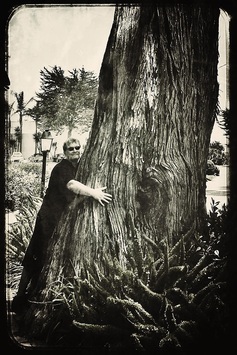 Dr. Morrison attended the American Federation for Aging Research's (AFAR) annual conference in Santa Barbara, CA for the second time. Individuals invited to attend the meeting have been selected by the Gilbert, Glazer, Ellison and Glenn private foundations for their innovative approaches to questions involving human aging as well as age-related diseases such as Alzheimer's. Presentations at the three day meeting are a tour de force of neuroscience demonstrating cutting edge approaches from cell and molecular biology to neuropathology to behavioral and cognitive neuroscience and even public health and epidemiology. Many investigators use multiple approaches in their laboratories. For instance one researcher from Israel is using optigenetics to specifically activate diseased neural circuits in Alzheimer's mice while their brain activity is measured using high magnetic field fMRI. Dr. Morrison presented work from the CAN lab's aging research group using neuroimaging to understand variability in memory and executive function in older adults exhibiting age typical as well as exceptional and pathologic aging. 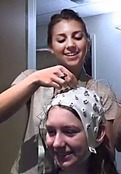 Congratulations to CAN labbie, Elise Gagnon who has received a Psichi/APS Summer Research Grant to work with Dr. Morrison on her Johnson Scholarship project investigating changes in brain networks responsible for analogical reasoning in girls and young women. Just 6 people from hundreds of applicants across the country receive one of these grants each year. Way to go Elise! 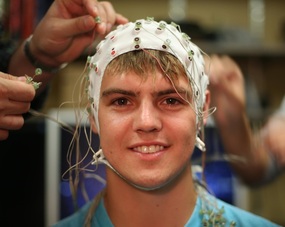 A hardy welcome to our new CAN lab, lab manager, Matt Kmiecik. Matt has worked in the lab as a student for the last three years where he has studied the cognitive neuroscience of verbal analogical reasoning--work he will continue in the lab during the next year. Matt has received LUROP funding for his projects over the last several years and will be joining Dr. Morrison at the Cognitive Science Society (Berlin, Germany) and the Third International Conference on Analogy (Dijion, France) at the beginning of August. As with Krishna, Matt is well versed in all we do in the lab including experimental design and testing, programming experiments in e-Prime and analyzing EEG data using EMSE. Matt will also be supervising training efforts in the lab. If you have questions about the lab in general or your project in particular please contact him in LL21! Well if all of our science endeavors collapse we should all open a restaurant! Wow...what a potluck in honor of our departing lab manager and celebrating so many distinguished graduates. Great fun and food was had by all. We will miss you Krishna! Thanks for all the great memories and the brain powered helicopter! Congratulations to the CAN lab 2013 graduates: Katie D'aunno Laura Endris, Matt Kmiecik Nirav Patel, Beccy Shukhman and Leo Skiadopoulos who ALL graduated with honors! Photos are from the senior toast, honors convocation, and the CAS sciences commencement ceremony. Cheers to all of your hard work and accomplishment! We are excited to watch your continued grown and excellence, please keep us up to date! CAN lab co-directors Dr. Morrison and Dr. Silton both received teaching honors this spring. Dr. Morrison was one of two recipients of the 2013 Edwin T. and Vivijeanne F. Sujack Award for Teaching Excellence. Dr. Morrison was the 6th psychology faculty member to receive the award since its inception in 1994. Dr. Silton was one of four professors named as a Master Teacher. Both awards recognize superb teaching of undergraduate students in the College of Arts and Sciences. Recipients of the award seem to have a common dynamic presence in the classroom, a willingness to try new ways of teaching, and a devotion to students that goes well beyond the call of duty. They embody the Jesuit ideal of higher education in their dedication to high standards, to critical thinking, and to the principle that knowledge must be put to the benefit of humanity. Drs. Morrison and Silton both thank each of you for making our jobs as teachers and mentors so meaningful and ENJOYABLE! Top: Dr. Morrison with Dean Andress and members of the Sujack family. Bottom: Dr. Morrison with members of the CAN lab who returned from the Cognitive Neuroscience Society Annual Meeting early to help celebrate. Right: Dr. Morrison's lovely hands! Sujack Award conferral read by Sujack Chairperson Anne Figart Dr. Morrison from the department of psychology has been teaching at Loyola for the past five years. He received his PhD from UCLA. In the short time he has been at Loyola he has taught six different courses in both psychology and the honors program. His course titles have ranged from experimental psychology, cognitive and behavioral neuroscience, the psychology of creativity, and an upper divisional graduate seminar in neuroscience. What really stood out about Dr. Morrison’s teaching record was his one on one mentoring of students. He regularly supervises students in the research laboratory and he also advises the Loyola Neuroscience Society. In his statement Dr. Morrison talks about teaching students the business of science including seeking funding, presenting work at conferences, and writing and publishing papers. Over 15 students in 5 years have received research fellowships under Professor Morrison’s direction. Professor Morrison strives to create a classroom environment were active learning is present to encourage students to integrate their own world experience with the course material. He uses a variety of methods including classroom exercises, videos, Blackboard, blog assignments and as we learned "assessable" Powerpoint. His enthusiasm, organization, and love of his subject matter are apparent both to this committee and to his students. The comments show that students love his courses even though, and particularly because, they are academically rigorous and challenging. Several key words appeared over and over in his course evaluations: enthusiasm, organization, and passion. Some student comments include: “Professor Morrison is a wonderful teacher and effectively stimulates interest in the subject matter. Each week I would leave class inspired and would find myself independently researching topics that we touched upon. His use of social media and technology gives the course an updated hip feel that is extremely relevant to the generation he is teaching.” Another student wrote, “Dr. Morrison is a brilliant, kind, and enthusiastic professor. His enthusiasm about neuroscience is contagious. I find myself excited to attend each class and feel exhilarated as he holds each class. He is fair, accountable and genuinely cares about his students." So, because of his exemplary record as an outstanding teacher and mentor the selection committee recommends Dr. Robert Morrison for the 2013 Edwin T. and Vivijeanne F. Sujack Award for Teaching Excellence. Congratulations. We have SO much to celebrate! Another successful year, graduating seniors, awards, and new fellowships!...oh and most of all the greatest Lab Manager ever! Take that last final...write that last paper...don your commencement gown...and then get you and yours to Bob's place on Sunday, May 19 at 6p. We will provide grilled meat (and veggie burgers) and cold drinks. If possible please bring appetizers, salad, side, dessert, etc. Please sign up here so we know whether you (and a guest) are coming and whether you will bring any food along. 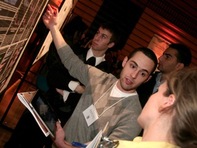 A special congratulations to former CANlabbie Brian Sweis, whose paper, "Individual Differences in the Effects of Chronic Stress on Memory: Behavioral and Neurochemical Correlates of Resiliency" was just accepted for publication in the journal Neuroscience. Brian is the first author of the paper which resulted from his Carbon Scholars Program research he conducted under the mentorship of Dr. Louis Lucas and Dr. Morrison and served as the basis for his honor's thesis at Loyola. Way to go Brian! |
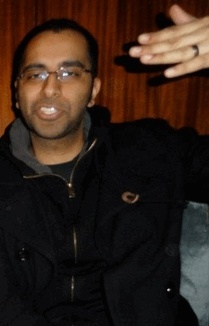
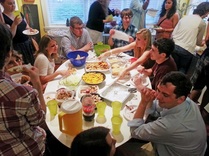
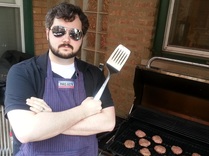




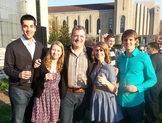

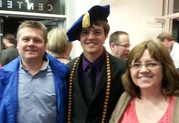


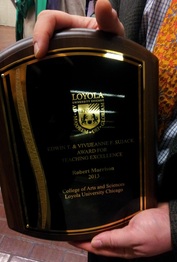
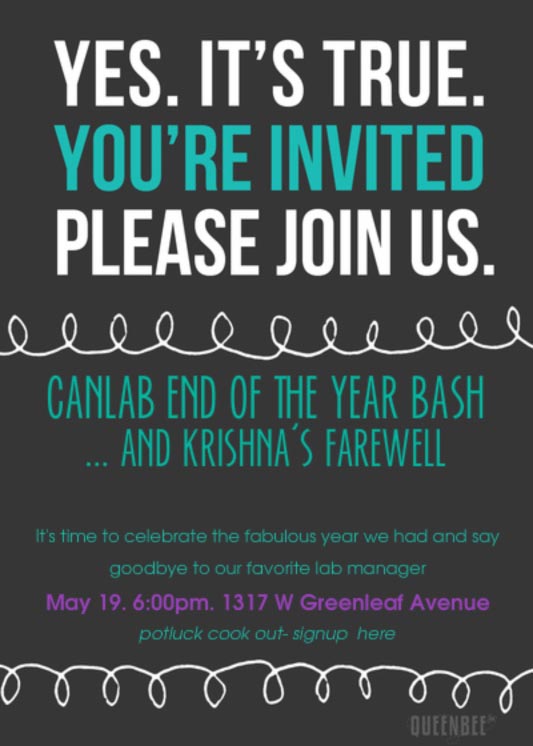
 RSS Feed
RSS Feed